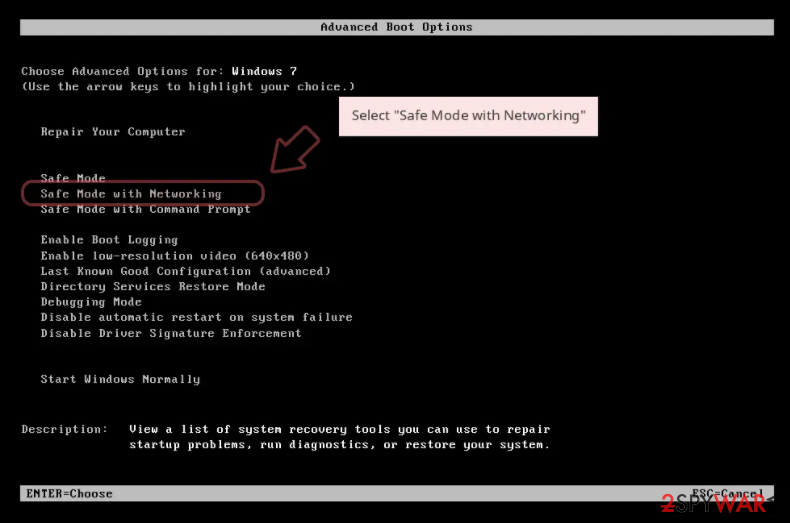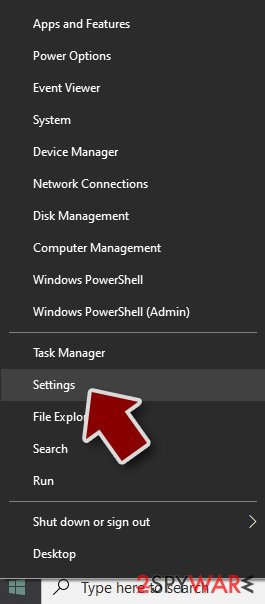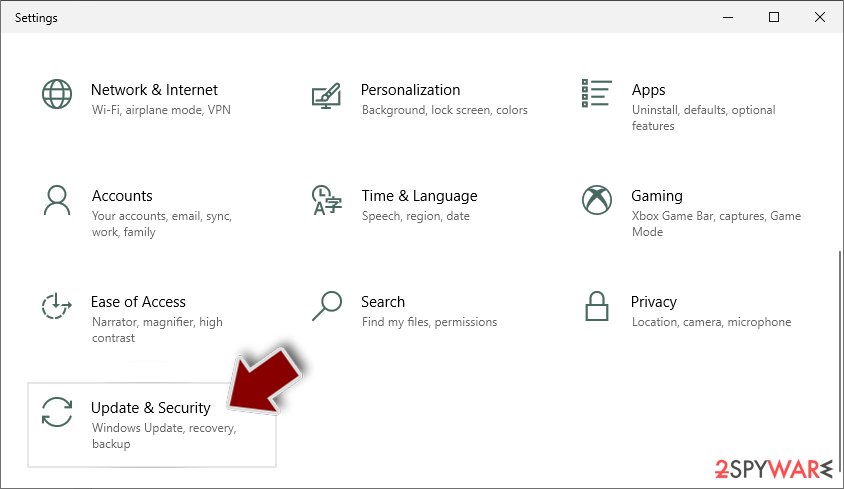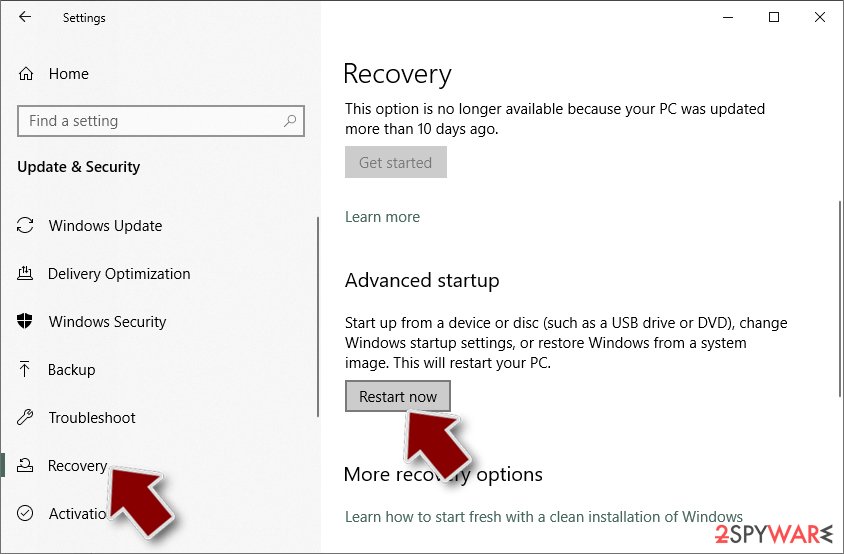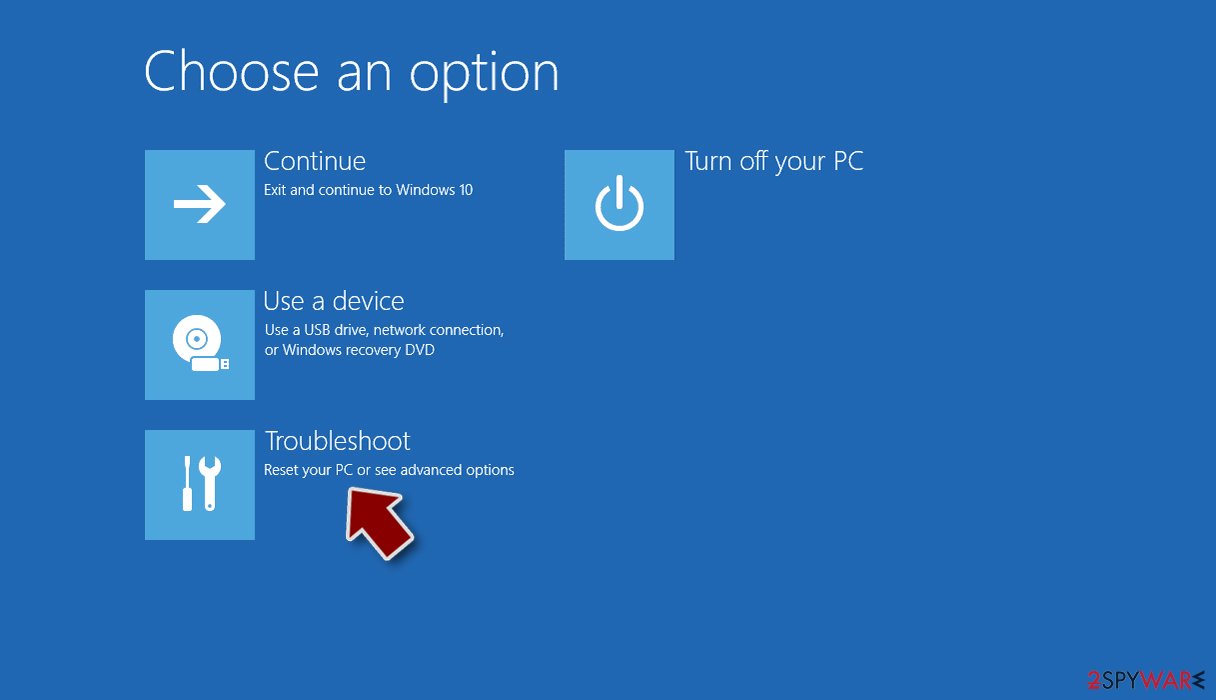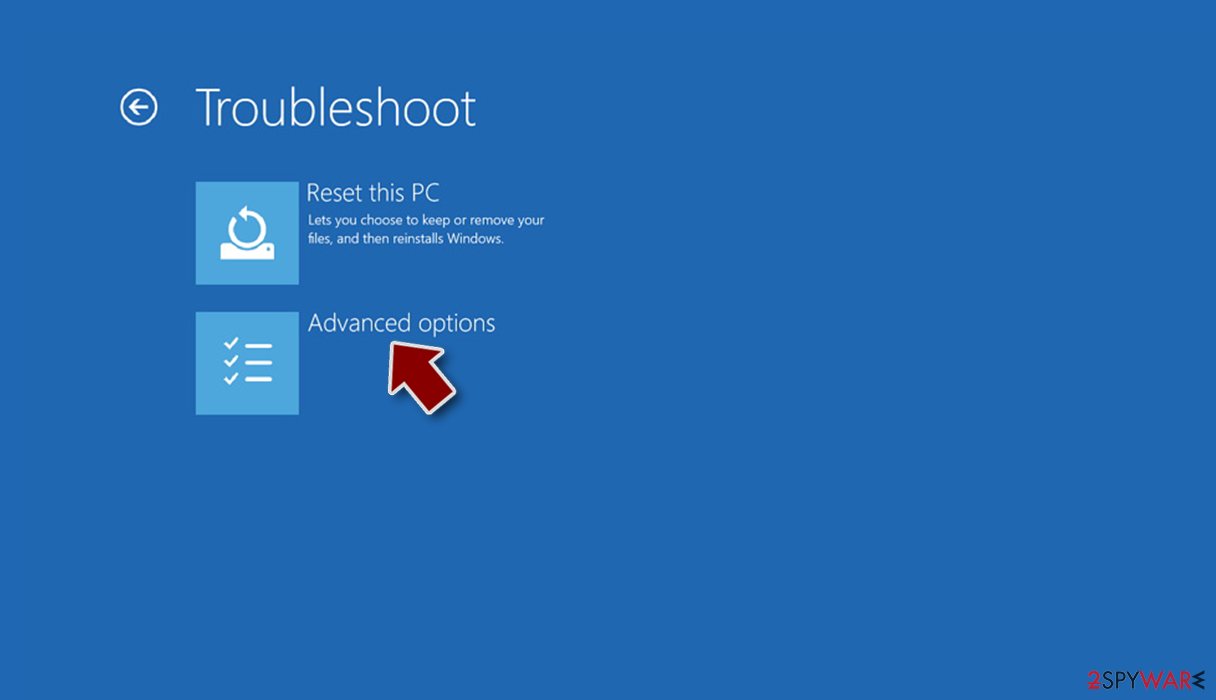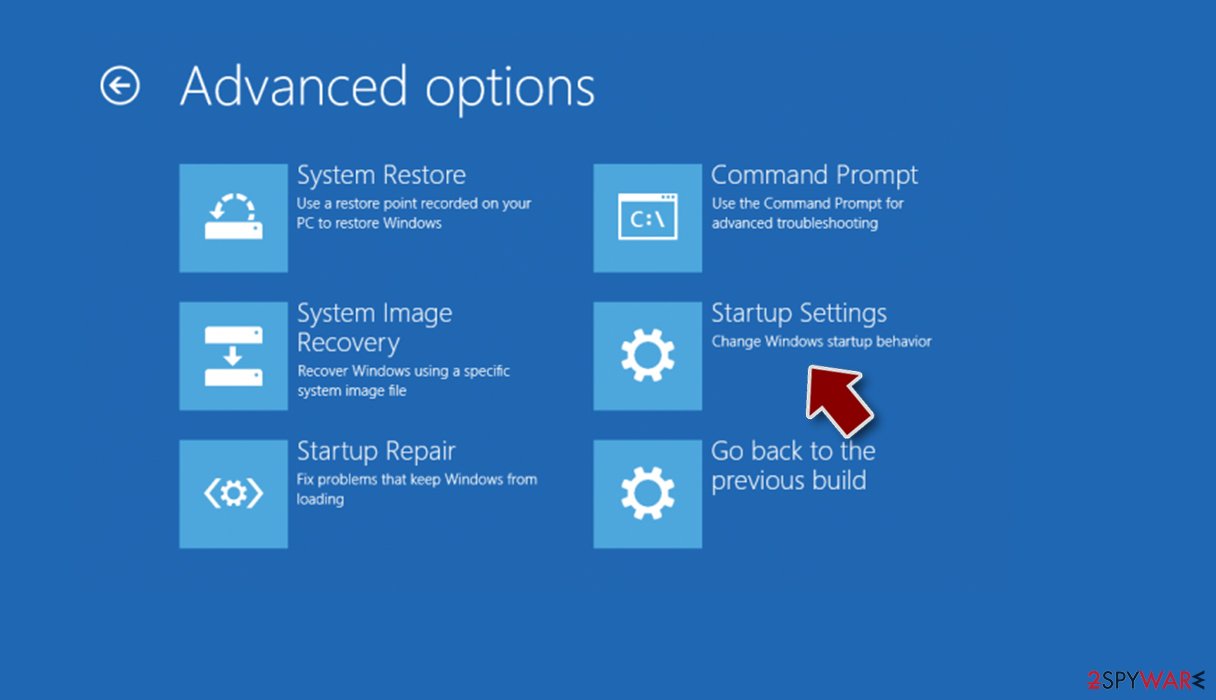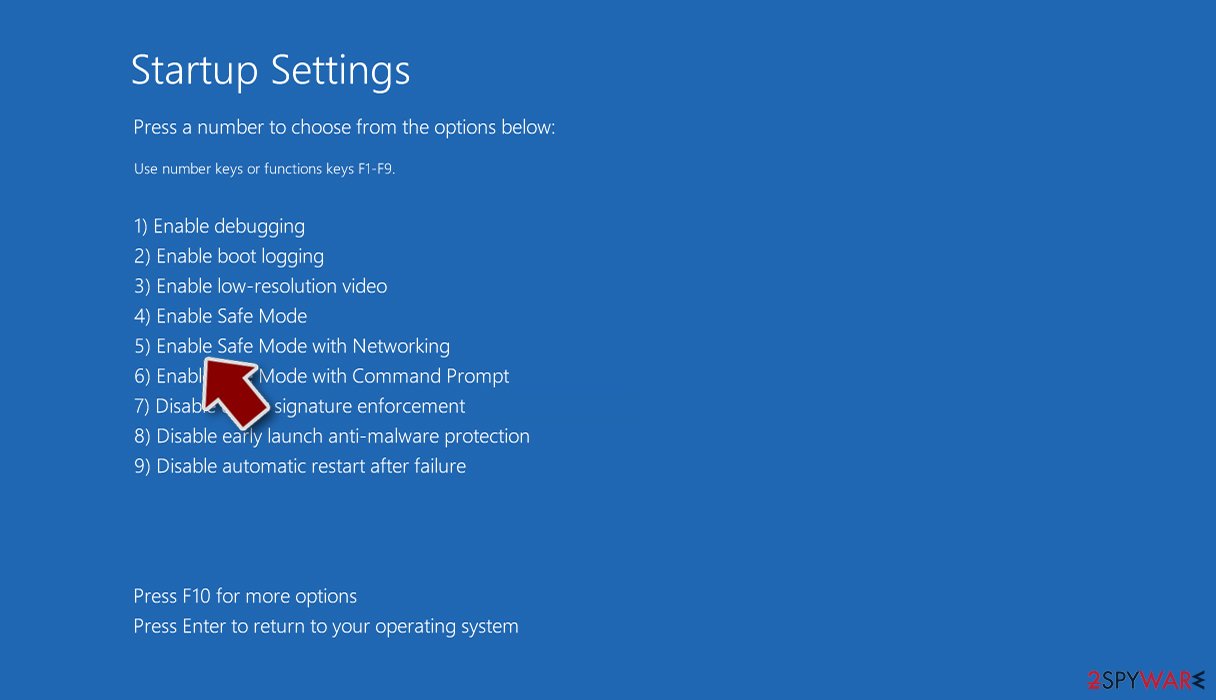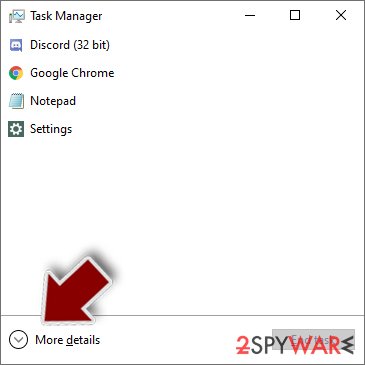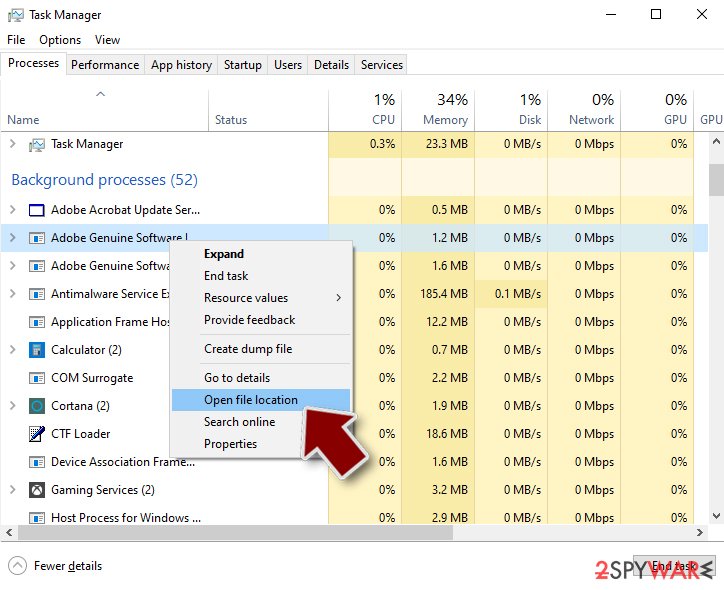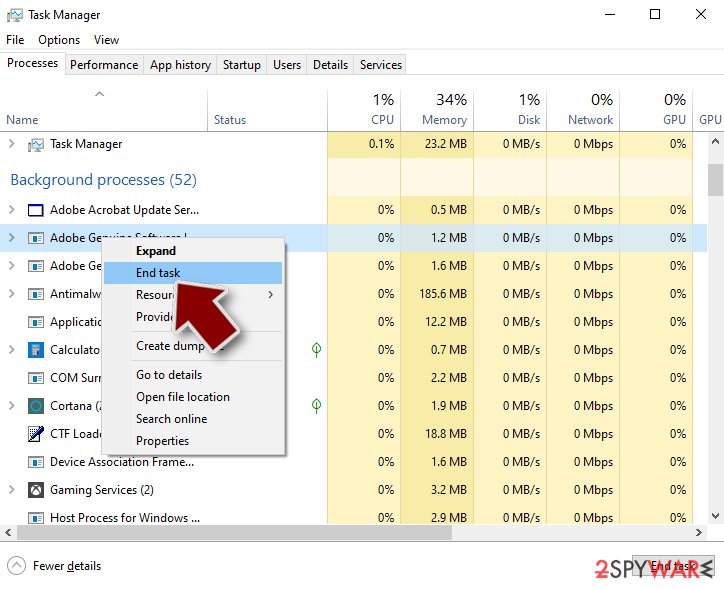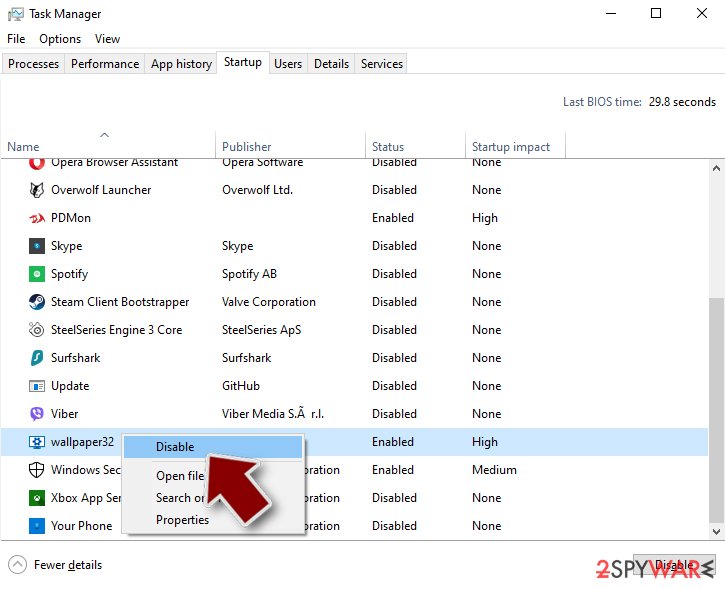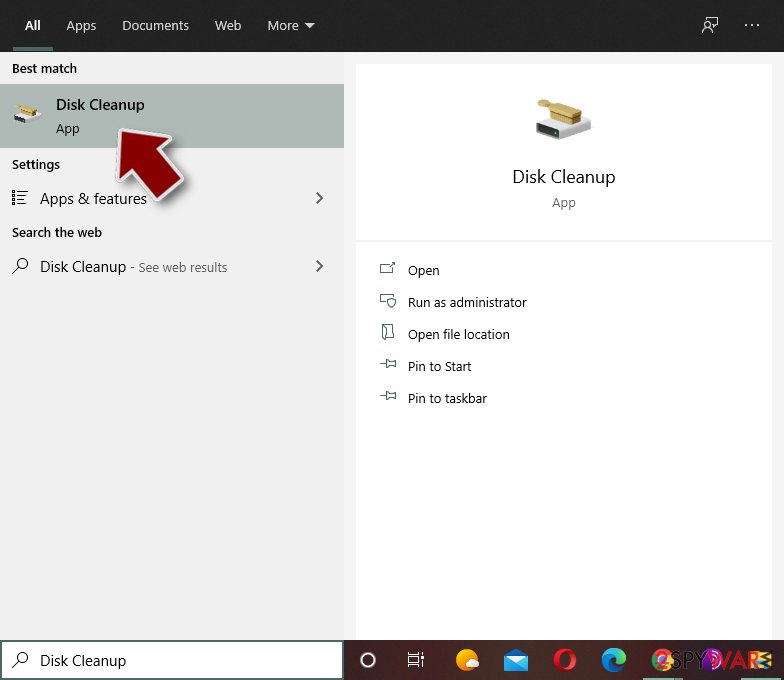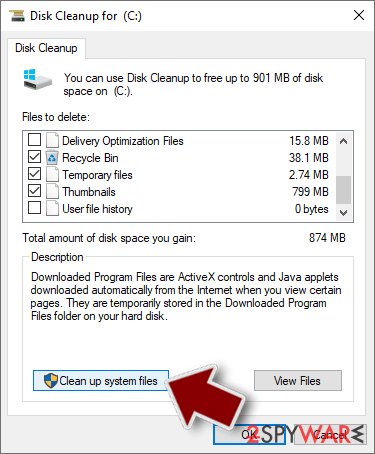NRSMiner (Virus Removal Instructions) - Free Guide
NRSMiner Removal Guide
What is NRSMiner?
NRSMiner is a malicious crypto miner that was seen infiltrating machines in Asia with the help of EternalBlue exploit

NRSMiner is a cryptojacking malware that uses computer's resources like CPU to mine Monero for cybercriminals. First spotted by security in early January 2019, it was seen attacking Asian countries by utilizing EternalBlue (CVE-2017-0144)[1] – the infamous NSA exploit that was used to propagate WannaCry ransomware globally back in 2017. NRSMiner is closely related to XMRig crypto mining utility, which on itself is legitimate software, although heavily abused by bad actors. It spreads through networks and also can be delivered to companies with the help of unlawful installation by third-parties. The malware modifies system heavily, spawns multiple processes and connects to a remote server to receive constant updates. Currently, NRSMiner is considered one of the most successful cryptojacking attacks that are most likely due to the increase in scale in the future.
| Name | NRSMiner |
| Type | Cryptojacker |
| Category | Malware |
| Infiltration | EternalBlue exploit, as an upgrade to older version of malware |
| Associated files | snmpstorsrv.dll, svchost.exe, TrustedHostex.exe, MarsTraceDiagnostics.xml. wininit.exe |
| Elimination | Use reputable security software |
| Optimization | To make sure all the malicious components are eliminated and system is running properly, scan it with FortectIntego |
Initially, most of the cryptominers are used for legitimate purposes and are not malicious. However, when used by cybercriminals, tools like NRSMiner become an imminent danger to all the infected. Cybersecurity researchers name two main ways how users can get infected with this threat:[2]
- By downloading the updater module onto a system that is already infected with a previous version of NRSMiner, or:
- If the system is unpatched (MS17-010) and another system within the intranet has been infected by NRSMiner.
If the system is infected with one of the previous variants of the virus, it will contact a specific website to download an update module. Soon after that, it will install the newest version and remove NRSMiner which was located on the system.
Once established, among other actions, NRSMiner will spawn a Snmpstorsrv service that is responsible for multiple different tasks, such as:
- Extracting C&C and Miner configuration;
- Sending system information;
- Sending processor information;
- Downloading and updater;
- Creating MgmtFilterShim.ini and running Wininit.exe, etc.
If NRSMiner malware is using EternalBlue to propagate, it will also install DoublePulsar backdoor onto the vulnerable system which then downloads and extracts x86.dll or x64.dll modules, depending on the Windows system version.
Users will generally not understand if they are infected with malware unless they notice the high usage of CPU, which might be attributed to something else. Nevertheless, the best way to detect the threat is to perform a full system scan with the help of security software.
After NRSMiner removal, users should use FortectIntego to make sure that all the system changes are reverted and the computer works normally.
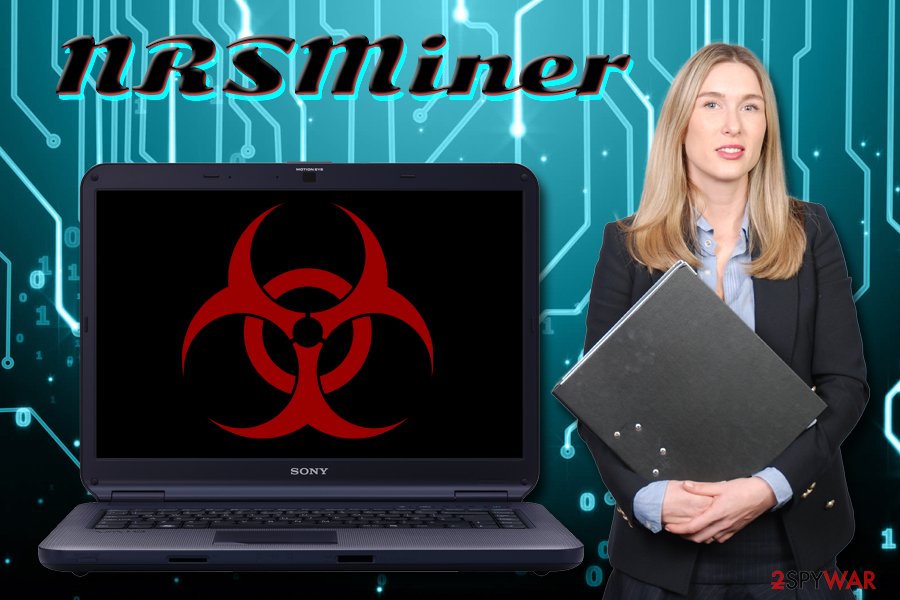
EternalBlue has been patched almost two years ago – update your system
According to researchers, the malware mostly affects Vietnam, Iran, and Malaysia – a total of 83.3% of all infections are coming from these three countries, making it especially dangerous for those in Asia. The most likely reason is due to companies and businesses using outdated systems that are not patched.[3]
Since the threat is spread with the help of EternalBlue, the best way to prevent it is to renew the systems and make sure they are up to date. Security patches are released continuously for Windows, so there is no need to delay the installation. Unfortunately, as we saw from previous examples, users all over the world fail to apply updates on time and get infected with various malware.
Therefore, patch your system immediately. Set your Windows to install updates automatically – you will not have to look for a patch somewhere on the internet. Besides, third-parties can host fake updates, bringing in more malware to your machine.
Eliminate NRSMiner to retrieve the security of your computer
NRSMiner virus is a sophisticated infection that is capable of propagating via the intranet. Therefore, even patched systems might get infected rather quickly. For that reason, experts do not recommend manual NRSMiner removal, as the system modifications the malware produces are excessive.
To remove NRSMiner safely, we suggest you download and install security software that can detect the threat. Be aware that not all databases have the virus included, so scans with a few different AV engines might be needed. To ensure that the malware does not interfere with the security program's operation, you might want to enter Safe Mode with Networking, as explained below.
Getting rid of NRSMiner. Follow these steps
Manual removal using Safe Mode
To remove NRSMiner in a safe environment, enter Safe Mode with networking:
Important! →
Manual removal guide might be too complicated for regular computer users. It requires advanced IT knowledge to be performed correctly (if vital system files are removed or damaged, it might result in full Windows compromise), and it also might take hours to complete. Therefore, we highly advise using the automatic method provided above instead.
Step 1. Access Safe Mode with Networking
Manual malware removal should be best performed in the Safe Mode environment.
Windows 7 / Vista / XP
- Click Start > Shutdown > Restart > OK.
- When your computer becomes active, start pressing F8 button (if that does not work, try F2, F12, Del, etc. – it all depends on your motherboard model) multiple times until you see the Advanced Boot Options window.
- Select Safe Mode with Networking from the list.

Windows 10 / Windows 8
- Right-click on Start button and select Settings.

- Scroll down to pick Update & Security.

- On the left side of the window, pick Recovery.
- Now scroll down to find Advanced Startup section.
- Click Restart now.

- Select Troubleshoot.

- Go to Advanced options.

- Select Startup Settings.

- Press Restart.
- Now press 5 or click 5) Enable Safe Mode with Networking.

Step 2. Shut down suspicious processes
Windows Task Manager is a useful tool that shows all the processes running in the background. If malware is running a process, you need to shut it down:
- Press Ctrl + Shift + Esc on your keyboard to open Windows Task Manager.
- Click on More details.

- Scroll down to Background processes section, and look for anything suspicious.
- Right-click and select Open file location.

- Go back to the process, right-click and pick End Task.

- Delete the contents of the malicious folder.
Step 3. Check program Startup
- Press Ctrl + Shift + Esc on your keyboard to open Windows Task Manager.
- Go to Startup tab.
- Right-click on the suspicious program and pick Disable.

Step 4. Delete virus files
Malware-related files can be found in various places within your computer. Here are instructions that could help you find them:
- Type in Disk Cleanup in Windows search and press Enter.

- Select the drive you want to clean (C: is your main drive by default and is likely to be the one that has malicious files in).
- Scroll through the Files to delete list and select the following:
Temporary Internet Files
Downloads
Recycle Bin
Temporary files - Pick Clean up system files.

- You can also look for other malicious files hidden in the following folders (type these entries in Windows Search and press Enter):
%AppData%
%LocalAppData%
%ProgramData%
%WinDir%
After you are finished, reboot the PC in normal mode.
Remove NRSMiner using System Restore
You can also try System Restore to stop the threat:
-
Step 1: Reboot your computer to Safe Mode with Command Prompt
Windows 7 / Vista / XP- Click Start → Shutdown → Restart → OK.
- When your computer becomes active, start pressing F8 multiple times until you see the Advanced Boot Options window.
-
Select Command Prompt from the list

Windows 10 / Windows 8- Press the Power button at the Windows login screen. Now press and hold Shift, which is on your keyboard, and click Restart..
- Now select Troubleshoot → Advanced options → Startup Settings and finally press Restart.
-
Once your computer becomes active, select Enable Safe Mode with Command Prompt in Startup Settings window.

-
Step 2: Restore your system files and settings
-
Once the Command Prompt window shows up, enter cd restore and click Enter.

-
Now type rstrui.exe and press Enter again..

-
When a new window shows up, click Next and select your restore point that is prior the infiltration of NRSMiner. After doing that, click Next.


-
Now click Yes to start system restore.

-
Once the Command Prompt window shows up, enter cd restore and click Enter.
Finally, you should always think about the protection of crypto-ransomwares. In order to protect your computer from NRSMiner and other ransomwares, use a reputable anti-spyware, such as FortectIntego, SpyHunter 5Combo Cleaner or Malwarebytes
How to prevent from getting backdoors
Choose a proper web browser and improve your safety with a VPN tool
Online spying has got momentum in recent years and people are getting more and more interested in how to protect their privacy online. One of the basic means to add a layer of security – choose the most private and secure web browser. Although web browsers can't grant full privacy protection and security, some of them are much better at sandboxing, HTTPS upgrading, active content blocking, tracking blocking, phishing protection, and similar privacy-oriented features. However, if you want true anonymity, we suggest you employ a powerful Private Internet Access VPN – it can encrypt all the traffic that comes and goes out of your computer, preventing tracking completely.
Lost your files? Use data recovery software
While some files located on any computer are replaceable or useless, others can be extremely valuable. Family photos, work documents, school projects – these are types of files that we don't want to lose. Unfortunately, there are many ways how unexpected data loss can occur: power cuts, Blue Screen of Death errors, hardware failures, crypto-malware attack, or even accidental deletion.
To ensure that all the files remain intact, you should prepare regular data backups. You can choose cloud-based or physical copies you could restore from later in case of a disaster. If your backups were lost as well or you never bothered to prepare any, Data Recovery Pro can be your only hope to retrieve your invaluable files.
- ^ CVE-2017-0144 Detail. NIST. National Vulnerability Database.
- ^ Neeraj Singh. NRSMiner updates to newer version. F-Secure. Security blog.
- ^ Doug Barney. The unrelenting danger of unpatched computers. Networ kWorld. Network news, trend analysis, product testing.
